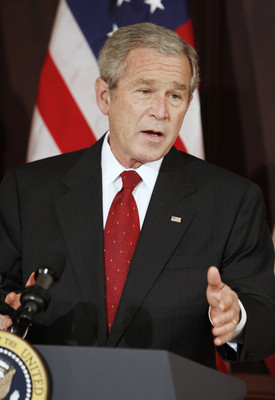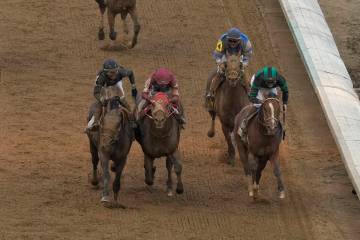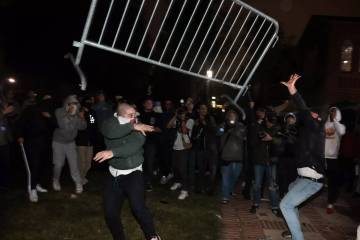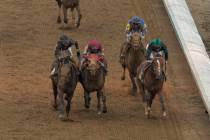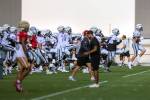Children’s health insurance bill sent to Bush
WASHINGTON -- The House and Senate last week voted for a bill to expand the federal health insurance program for children, sending it to the White House where President Bush has vowed a veto.
The Senate passed the bill by a large enough margin to signal a veto could be overridden. But the House was between 20-30 votes short of making the bill rejection-proof.
The legislation would expand the State Children's Health Insurance Program, which covers about 6 million children whose families are not poor enough for Medicaid but presumably not wealthy enough to afford private coverage.
The reworked program would be expanded from $25 billion to $60 billion over five years, adding coverage for 4 million children. The added costs would be offset by increasing the federal tax on tobacco by 61 cents.
The legislation was viewed as politically popular by Democratic advocates, who challenged Republicans to vote against health care for children. In the House, 45 Republicans voted for it including many from swing districts. In the Senate, 18 Republicans voted for it.
Supporters said the expanded program would help more families afford health care for their children.
President Bush and his allies in Congress argued the bill was a step toward a government takeover of health care.
They argued that new eligibility rules could allow families making as much as $80,000 annually to obtain subsidized health insurance. They also argued the tobacco tax increase would not be enough to cover costs, leaving taxpayers to pick up the difference.
The House passed the bill 256-159. Reps. Shelley Berkley, D-Nev., and Jon Porter, R-Nev., voted for it while Rep. Dean Heller, R-Nev., voted against it.
The Senate vote was 67-29. Sen. Harry Reid, D-Nev., voted for it while Sen. John Ensign, R-Nev., voted against it.
HATES CRIMES EXPANDED
The Senate voted to expand the federal hate crimes law to cover violations against homosexuals, transsexuals and disabled people.
Local police would be able to gain more federal help to solve crimes involving people in those groups, and federal sentencing rules would be toughened against those convicted in such crimes.
The amendment expands the law that dates to 1968 that has focused on race, color, religion and national origin. The amendment is called the Matthew Shepard Act, named after the gay man who was beaten and left for dead tied to a fence in Wyoming in 1998.
Supporters said the federal government should have a role in pursuing justice in such crimes.
Critics said the amendment was overly broad. They also complained the amendment was added to a seemingly unrelated defense authorization bill, and could trigger a veto by President Bush.
The amendment was adopted by voice vote after supporters won a key test vote, 60-39. Reid voted for it while Ensign voted against it.
DEBT LIMIT CLOSE TO $10 TRILLION
The government's debt could reach close to $10 trillion after Congress voted to raise the limit on government borrowing authority.
Senators voted 53-42 to raise the debt limit by $850 billion, to the new ceiling of $9.8 trillion. The bill was a must-pass to enable the government to continue borrowing to stay in business.
Critics said the need to expand borrowing illustrates how President Bush and Congress have failed to manage the budget. The vote marked the fifth time the debt limit was raised since 2002.
Democrats blamed Bush and Republicans who previously ran Congress. Republicans said the necessary costs of homeland security were a factor, and they argued that Bush's economic policies actually made the economy stronger.
Reid voted to increase the debt limit. Ensign voted against the increase.
POPCORN MAKERS PROTECTED
The House voted 260-154 for new safety rules to protect people who make a chemical used in the artificial butter flavor for microwave popcorn.
The bill gives the Occupational Safety and Health Administration 90 days to come up with a temporary health standard and two years for a permanent one.
The chemical is diacetyl, which is used in food flavorings including the fake butter in microwave popcorn. Bill sponsors pointed to studies identifying cases of bronchiolitis obliterans, also known as "popcorn lung," among workers in popcorn factories.
Critics said definitive studies are not complete. Many popcorn makers already have switched to other additives.
Berkley and Porter voted for the bill. Heller voted against it.



